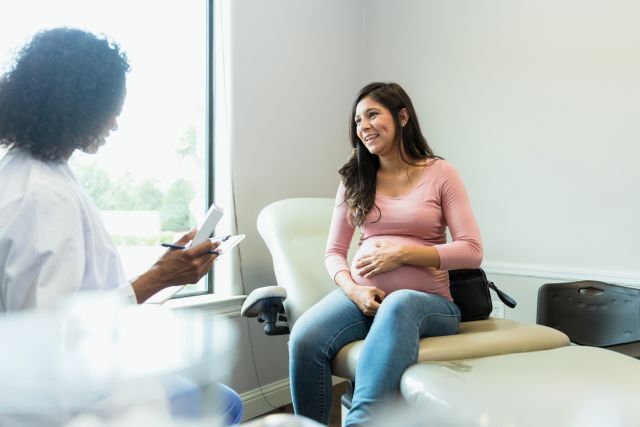Updated on March 29, 2024.
For many people, the healthcare provider (HCP) they see most often may be an OBGYN. Besides checking in for regular screenings such as a Pap tests and mammograms, they are the go-to experts for questions and concerns about birth control, sexual health, pregnancy, and menopause symptoms.
If you have a good relationship with an OBGYN, you may be wondering if you can count on them for all your basic medical needs. And in fact, many people do just that, putting off finding a primary care physician until they have multiple medical issues, says Rabiya Suleman, MD, an OBGYN at Overland Park Regional Medical Center in Kansas.
“For someone who’s otherwise healthy, that’s generally okay. OBGYNs are trained to address basic things like blood pressure, high cholesterol and thyroid status,” says Dr. Suleman. She notes that OBGYNs also help with health issues that arise as people age and go through the menopause transition.
The American College of Obstetricians and Gynecologists (ACOG) has come up with guidelines for what OBGYNs should offer at yearly wellness checkups, based on age and risk factors. These include:
- Screenings
- Laboratory and other tests
- Evaluation and counseling
Suleman says her practice sees people for wellness exams on a yearly basis. “During that time we address blood pressure, smoking status, exercise, and diet. We usually will offer a yearly set of labs to check thyroid, cholesterol, hemoglobin, and blood sugar,” she says.
You can also get certain key vaccinations at your OBGYN’s office. In fact, ACOG has released guidelines for offering immunizations as a way to boost lagging vaccination rates among adults. “In our office we do flu shots, the Tdap vaccine, and the HPV vaccine,” says Suleman. “We don’t offer hepatitis B or pneumococcal vaccines, though.” (Ask your OBGYN if they offer COVID vaccines, which may also be available at clinics and drugstores.)
When to see another healthcare provider
While OBGYNs can handle many of your basic health needs, you should speak to another HCP about health-related questions that are not covered by your OBGYN. For example, these may include skin concerns, gastrointestinal issues, and mental health. In many ways, Suleman says, “we’re like a sieve, or screening tool for specialists.”
“If your cholesterol is high, I can start you on dietary measures, but I’ll also set you up with another doctor,” she says. “If I see a strange mole on your skin, I can say it looks irregular, but I’m not going to do a biopsy. I’ll refer you to a dermatologist. And even though screening for post-partum depression is an important focus for us, when it comes to treating depression of any type there’s only so far we might go. I may try a few rounds of medication, but if that doesn’t work I’ll send someone with depression to a psychiatrist.”
The bottom line, according to Suleman, is if you have a chronic condition such as diabetes or lupus, you should regularly see an internist or family practice doctor. And if you have a specific health concern requiring a specialist, you should ask for a referral to an HCP who can best manage your treatment.





